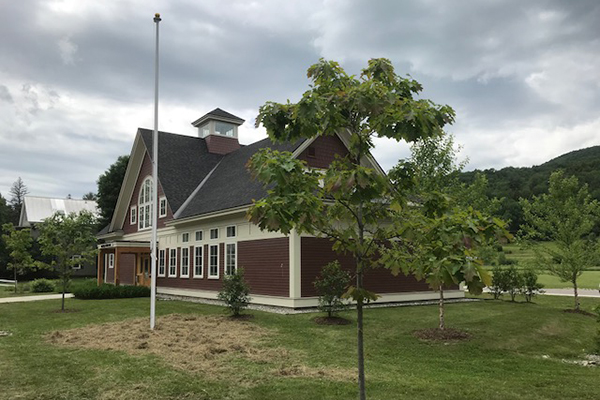The Waitsfield Planning Commission came before the select board this week to discuss the town’s contract with engineers Dubois & King for a wastewater and water feasibility analysis, as well as the town’s loan application in the amount of $78,753 for the Clean Water State Revolving Fund (CWSRF). At the March 28 meeting, planning commissioner Alice Peal said that, as American Rescue Plan Act (ARPA) funds have become available, the commission decided to bring up wastewater infrastructure needs for the town. The Phase I feasibility study is funded by ARPA funds. One of the deliverables Dubois & King will provide to the town is a storyboard website that includes maps, a synopsis of the project and the engineers’ recommendations, and notices of public meetings related to the project. The project is set to begin on April 11, contingent upon the board approving the contract and loan application, which Peal said may take up to a few weeks to be processed. She said there was a minor risk to the town if the loan was not approved, but that the contract could be terminated at any time should that occur. She said the loan is 100% forgivable and the feasibility study is reimbursable, so there would be no cost to taxpayers. The select board approved the contract and loan application, which will go in front of the Department of Environmental Conservation and the CWSRF.
Brad Cook came before the board to discuss energy assessments of municipal buildings in Waitsfield. He said Efficiency Vermont is offering $4,000 incentives for towns to improve the efficiency of town buildings. Cook assessed the General Wait house and identified replacing windows and roof repair as possible options to improve efficiency. “Both are pretty big projects,” he said. He said the Waitsfield-Fayston Fire Department building could be made more efficient by air sealing and adding insulation to the rear walls. He said he hopes the town will contribute funds to the project. If the town applied for the Efficiency Vermont incentives to address the fire house inefficiencies, an energy consultant would be assigned to the project. Cook brought a proposal to the board, which needs to be signed by March 31. Cook said Warren, Fayston and Duxbury have already used their incentives on efficiency projects. The board voted unanimously to authorize town administrator Annie Decker-Dell’Isola to sign the contract with the contingency that the Efficiency Vermont incentive would be required to fulfill the project.
The board also discussed changing COVID-19 protocols based on the new community level map by county, as opposed to the transmission map previously used. Masks will be required in the town office if Washington County is identified as having high levels of COVID. The town website will be regularly updated to reflect the threat levels and related protocols. Visitors to the town office may also request town employees put on masks. \
At this week’s meeting the board approved liquor license renewals for 1824 House, Emily’s Bar and Bistro, von Trapp Farmstead, Alpino Vino, Kitchen-ette, Big Picture Theater, Laughing Eagle, Sage Restaurant, Brockton Corporation (Shaw’s), American Flatbread, Irasville Country Store and Worthy Burger Too. Applicants who received their original liquor licenses within three years were required to attend the meeting in-person or via Zoom. Toast & Eggs’ liquor license was renewed and its request for a new outdoor consumption permit was approved pending site plan approval from the Development Review Board (DRB) to allow its outdoor tent to be re-erected (the restaurant had received a temporary permit for the tent, which has since expired). The DRB will review the request on April 12.












